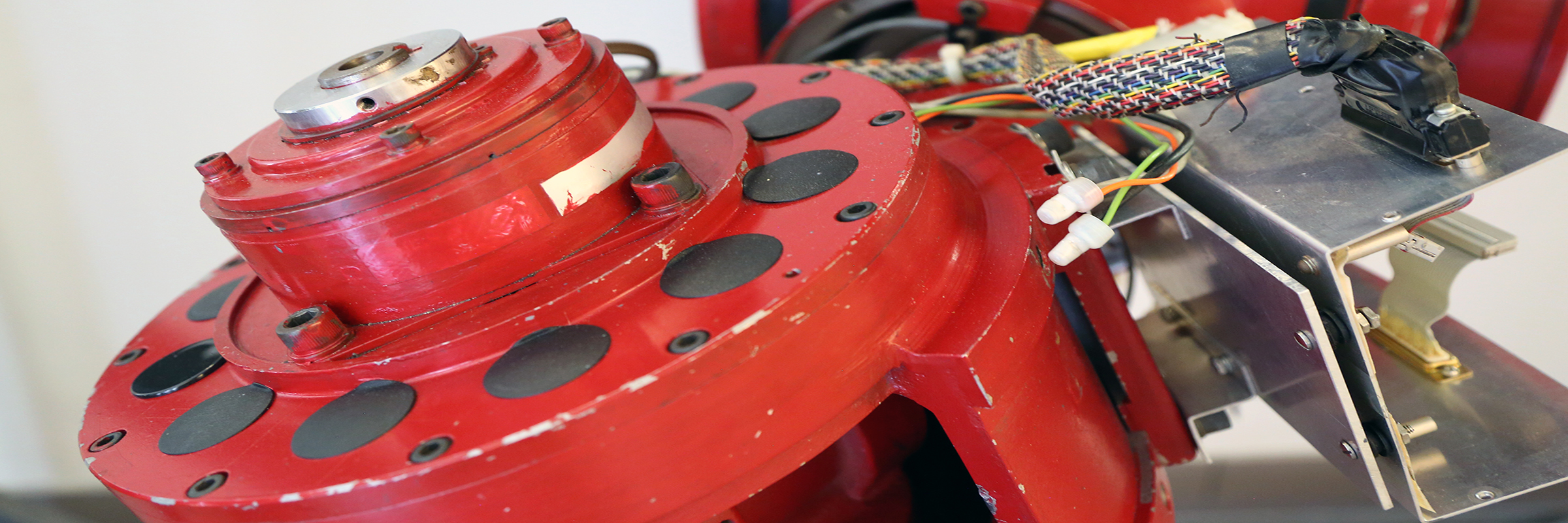About The Robotics Project
At Carnegie Mellon University, we believe that the story of robotics deserves to be told properly, and the time to recognize this discipline as one worthy of its own archive is long overdue. That’s why CMU has launched The Robotics Project: a unique partnership between the University Libraries and the School of Computer Science to create a home for the past, present, and future of robotics. We’re working to create the pre-eminent archival, historical, and instructional resource on robotics as a scientific discipline, a field of practice, and a cultural force.
Our vision is to explore the development of a field that has remade the modern world, and to educate and inspire future generations. This requires attracting collections from the world’s leading roboticists, establishing new models for archiving multi-modal technology collections, setting new standards for how archivists and curators approach their work, and ensuring that the record of early robotics is preserved.
Inspired by a robotics culture that meshes large-scale dreaming with hands-on engineering, the program is ambitious in scope, with the goal of achieving national recognition for the collection and our outreach activities within five years.
About The Digital Archive
The Robotics Project uses stories and artifacts from the past to inspire current and future generations, and we developed this digital archive so that you can explore this history. It contains digitized and digital videos, photographs, records, oral histories, artifacts, and robots donated by the robotics community. We connect these objects through complex, aggregated descriptions of the technology and the people behind it so that we can learn about the robotics research ecosystem. This website will continue to grow and expand as we build the collections that comprise the robotics archive at CMU.
If you find a mistake in the digital archive or if you can contribute new metadata, we want to hear from you. Contact us to learn more about how you can help.
If you have photographs, papers, videos, or old robots that you want to contribute to the archive, please consider contacting Kathleen Donahoe, Interim Lead Archivist for The Robotics Project. You can learn more about our collecting activities on our website.
It is through the remarkable generosity of our supporters that we are able to embark on this journey to build The Robotics Project. Please consider supporting our work by making a donation to the Robot Archive Fund, dedicated to supporting the needs of this project.
For more information, or to inquire about specific giving opportunities, please contact Morgan Walbert, Director of Development, University Libraries.
Future Work
The work of The Robotics Project doesn’t end here. This multi-phase, multi-year initiative preserves and promotes the legacy of robotics to support research, explain the development of a scientific field that has remade the modern world, and inspire current and future generations.
We will continue growing this website as we expand the robotics archive at Carnegie Mellon. To learn more about our ongoing work, visit our website.
Other Information
Take Down and Removal
The Carnegie Mellon University Libraries have made a best faith effort to assess our responsibilities and risks related to the copyright status of all of the items in our collections, and to make those items available in alignment with best practices as established by information science professionals. Our intention is to make content available for use in research, teaching, and private study. We are always willing to discuss copyright concerns with a rights holder who finds his or her content in our collections.
If you believe an item in our repository violates your copyright or privacy, please contact us and include information on the item in question and your concern.
Accessibility
Carnegie Mellon University Libraries is committed to making the materials it provides access to as broadly accessible as possible, and to ensuring that access to its content is consistent with obligations under state and federal disabilities law, including the Americans with Disabilities Act.
If you need additional accommodation to undertake your research, please contact us and we will work with you to meet your needs.
Privacy
The Carnegie Mellon University Libraries’ Digital Collections adhere to the University’s broader privacy notice. Information collected is used to enhance and improve our services.
Harmful Language Statement
Disclaimer Regarding Harmful and/or Offensive Language
The University Libraries recognizes that you may encounter materials in our collections containing harmful and/or offensive language both in historical records and the tools we create to describe them. Archival records are historical documents and therefore, they are unaltered to maintain their integrity and to foster accountability for the actions and views of the record’s creator. The language used by record creators and the materials they collected reflects the time and social context in which they were created.
The Descriptive Process
When describing the digital objects in these collections -- including historical publications and rare books -- we use “controlled vocabularies” maintained by external bodies. These controlled vocabularies and other traditional descriptive practices such as Library of Congress Subject Headings can be outdated, biased, and problematic, especially for marginalized peoples.
What are the University Libraries Doing to Remediate Outdated, Harmful, and Offensive Language?
The University Libraries is committed to the remediation of historical descriptive language and the work of critical cataloging. We are in the process of developing guidelines for remediating harmful descriptions and updating descriptions to include warnings for collections with sensitive materials. If you encounter language or content that you find offensive or harmful in a finding aid please contact us at archives@cmu.edu. We welcome your feedback.

